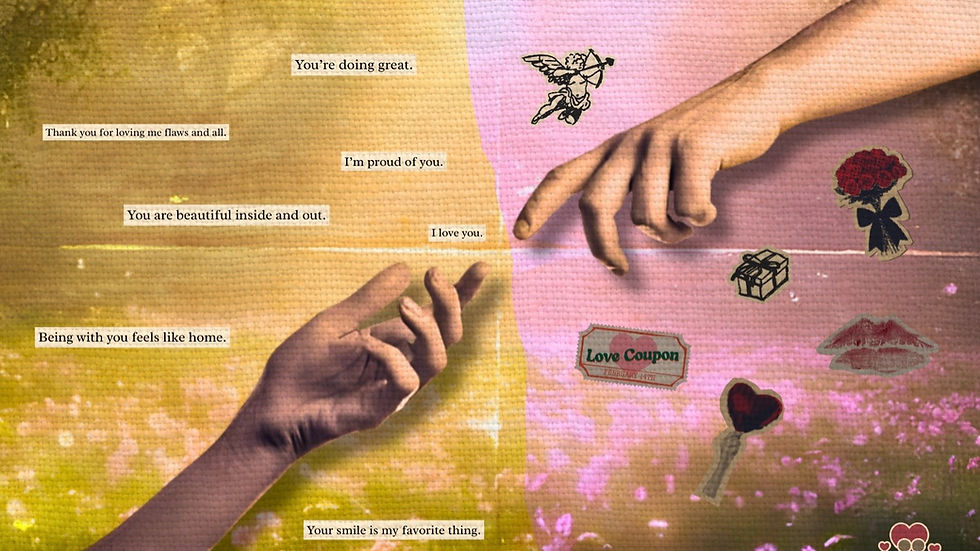FEATURE | Shattering the Culture of Silence Surrounding Violence Against Women
- The Communicator
- Dec 12, 2023
- 3 min read
“Speaking up has a price, but being silent has an even greater consequence in human lives. We need to create an environment where reporting abuse in any form is acceptable, and where others are willing to listen.” - Maca Tabuya

Violence against women (VAW) is a pervasive social problem in the Philippines. According to the Philippine Commission on Women (PCW), one in every four Filipino women aged 15–49 has encountered physical, emotional, or sexual violence from their husbands or partners. With this, various measures have been put in place to fight and stop this violence. This includes Proclamation 1172 s. 2006, or the 18-day Campaign to End VAW—an advocacy campaign that aims to promote awareness on the issue, observed annually from November 25 to December 12.
Today marks the end of this year’s campaign, but the fight continues.
During last year’s movement, the executive director of PCW, Atty. Kristine Yuzon-Chaves conducted social experiments exhibiting different situations that depict instances of VAW, like men harming and humiliating women in public. They visited different communities and observed how the residents responded to witnessing abuse. Its goal was to raise awareness and prompt action among survivors, their loved ones, the community, and those responsible for addressing the issue.
After this, Atty. Yuzon-Chaves emphasized that despite witnessing acts of violence happening right in front of them, many Filipinos still hesitated to intervene out of fear.
VAW being taken as a joke
Moreover, the prevalence of VAW can be attributed to a social system that regards women as inferior. Women are often seen as objects, and their sufferings are not being taken seriously; worse, they are taken as a joke.
Even prominent people do this, like former President Rodrigo Duterte.
“They say there are many rape cases in Davao. Well, for as long as there are many beautiful women, there will be many rape cases, too,” Duterte said in Bisaya at an event in Mandaue City in 2018.
This is not the first nor the last time Duterte has said something dangerously misogynistic. The former president has always been called out for making cynical and sexist jokes.
Following this, Christelyn Sibugon, a Women's Global Network for Reproductive Rights advocate, stated that the culture of rape has become part of Filipinos’ everyday lives—from behavior to language—that people rarely question it.
Culture of silence in the Philippines
Religion is the utmost contributor to our culture; it plays a crucial role in shaping a society that enables patriarchy and demeans women. This results in a culture of silence that not only hinders the reporting of cases and assistance of victims but also strengthens power disparities and impedes social advancement.
Numerous interviews with rape survivors, advocates, and government officials have indicated that this culture remains prevalent in the Philippines. Breaking this is crucial for fostering open communication, encouraging support for victims, and creating an environment that is conducive to positive societal changes.
Filipino commitment to change
In the Philippines, various associations have taken a proactive stance in the fight against violence against women, recognizing the urgency of addressing this issue.
One notable organization is the Gabriela Women's Party, a progressive women's group engaged in legislative advocacy to promote laws safeguarding women’s rights. Another one is CAMELEON Association Inc., which works with the provincial and city local governments in Western Visayas focusing on child protection. They also encourage local government units (LGUs) to give support to their resident girls under rehabilitation.
Additionally, PCW plays a pivotal role in coordinating efforts to advance gender equality and combat VAW. Lastly, the UN Women Philippines, which collaborates with governmental and non-governmental entities to contribute to the elimination of violence against women through various awareness campaigns.
The commitment of Filipinos to fight and campaign for ending VAW reflects a growing awareness of the need for change. The Philippines has seen a commendable and multifaceted approach to combating violence against women, with various organizations and corporations actively engaging in the cause.
‘Ending violence against women is possible, but only if we act together, now.’- World Health Organization (WHO)
Article: Zeny Marie Cerantes
Graphics: Cathlyn de Raya




Comments